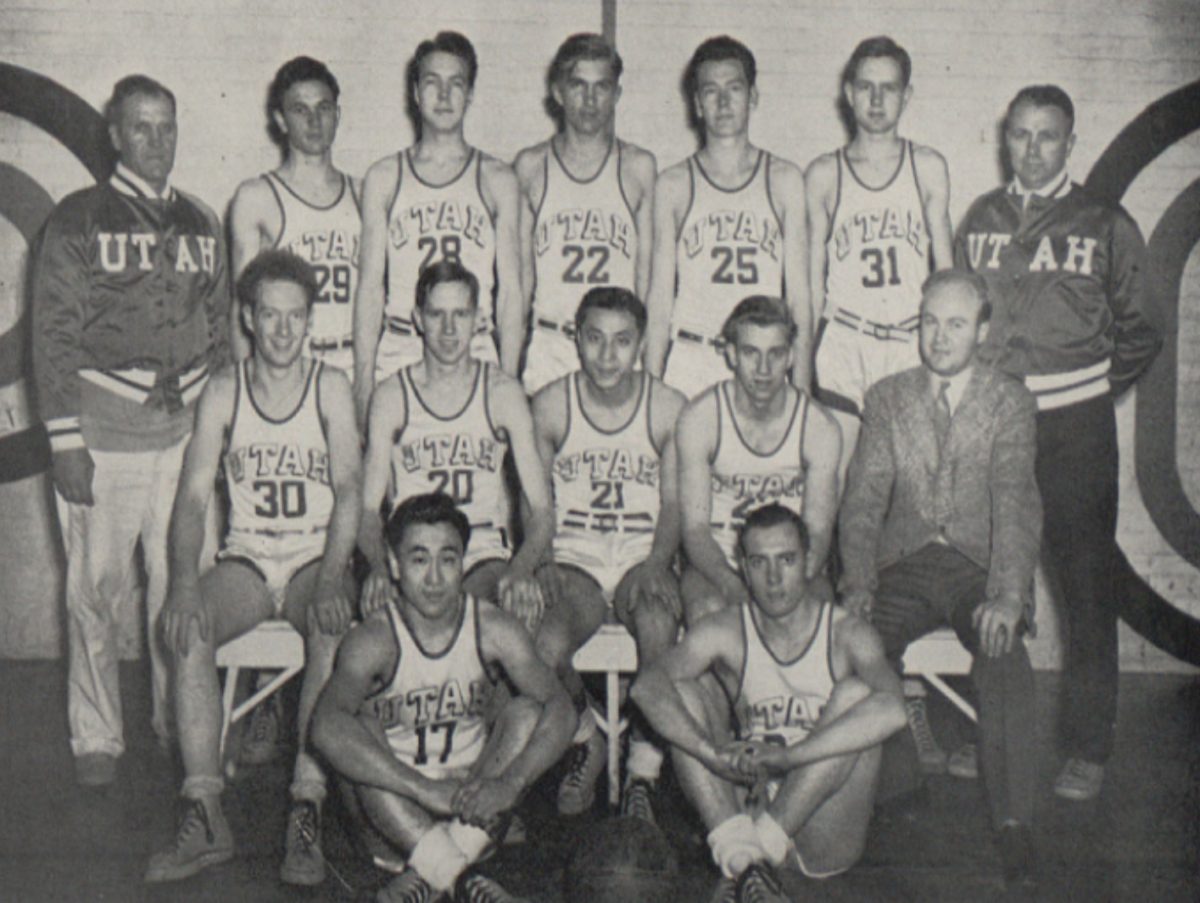Burton: How to Have a Successful First Year at the U

UAC first-year students on September 2019
May 6, 2020
College is an exciting and soul-expanding experience. It’s where most of us find our passions and future careers, and many of us enjoy more independence in our first year than we have ever before. There are many aspects of college to look forward to, but it can also be a frightening time. Even before you’ve attended your first class, your new responsibilities may feel overwhelming. Luckily, just focusing on good time management, “showing up” and using your judgment to apply the suggestions that work best for you will help make your freshman year as stress-free and edifying as possible.
Let Go of Your Expectations
Before any of that, though, it helps to let go of your assumptions about how college should go. One of my favorite episodes from the show “The Simpsons” is “Homer Goes To College,” where Homer is forced to go to college after a big work accident. His expectations of frat parties, stuck-up deans, and jock culture get in him into huge trouble, and he spends the episode embarrassing himself. It’s clearly a satire, but the episode does demonstrate how expectations can shape your college experience. Be ready to face surprising challenges and benefits: you may find that campus isn’t as social as you’d like or that your classes aren’t as impossible as you expected or that you aren’t the smartest person in the room. No matter the circumstance, being in school requires constant adaptation.
Now you’re ready for a few basic guidelines for a successful undergraduate experience.
Party Smart, Study Smart
There’s nothing inherently wrong with enjoying a fun weekend, whatever fun means to you, but partying to its extremes won’t do you any favors. The opportunity cost of this carefree lifestyle can start adding up: your grades may not be as good, you’ll be more distracted and worn out, and you’ll lose precious study time. Leisure and academic success aren’t mutually exclusive by any means, but prioritizing and scheduling these two demands will save you a lot of time and energy.
It might sound old-fashioned, but just keeping a calendar can be tremendously helpful, and there are dozens of time management apps that make managing your activities easy and portable. Whatever you use, start by making an hour-by-hour schedule and a specific list of goals. The more precise, the easier it will be to establish good habits. Time management can be more difficult than even some of your classes, but mastering the skill will put you on track for a successful college career and substantially reduce your stress.
Show Up
The film director Woody Allen once commented that “80 percent of success is showing up.” Being passive about your academic goals will make them all the more difficult to achieve — so “show up” when opportunities arise and take advantage of as many resources as you can. The U has dozens of offices and on-campus organizations designed to help you have the best possible experience. We have programs like the Hinckley Institute of Politics, the Bennion Center and hundreds of campus clubs that provide extracurricular opportunities to suit your interests. In the Union Building alone, you’ll find the Women’s Resource Center, the LGBTQ Resource Center, the Veterans Support Center and the Feed U Pantry as well as a meditation space and a bowling alley. If you don’t ever show up, though, you’ll never enjoy the potential benefits. So go to as many events, apply for as many jobs and internships and talk to as many people as you can without spreading yourself too thin.
Personalize Your Time at the U
These are just a few strategies I’ve applied to have a successful run here at the University of Utah, but everyone has different habits, preferences and circumstances. Some students may need to work extra jobs to pay for tuition and housing, while others may have full-ride scholarships. You might balance your courses with family responsibilities or learning to live with a difficult roommate, looking to expand your social circle or hoping to earn high grades in preparation for graduate school. Whatever it is, understanding your unique situation will help you immensely.
As you prepare for your freshman year, people and companies will throw college “advice” at you like free candy — some of it will be pretty good and some of it will be really bad. Not every piece of advice you’ll receive will be equally applicable to your personal circumstances and priorities, so practice good judgment and experiment to figure out what works for you. Once you establish a routine, you’ll become more successful in your academics, career, and social life.
College is frightening and exciting all at the same time, but most importantly, it’s doable. By rethinking your expectations, learning to balance fun and school, getting involved and adapting your experience to suit your personality and needs, you’ll maximize not only your academic learning but your personal growth over the course of the next four years.






